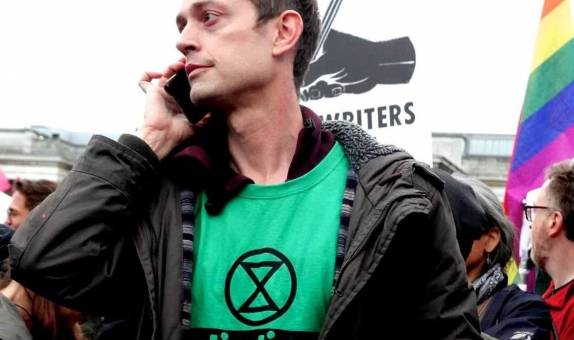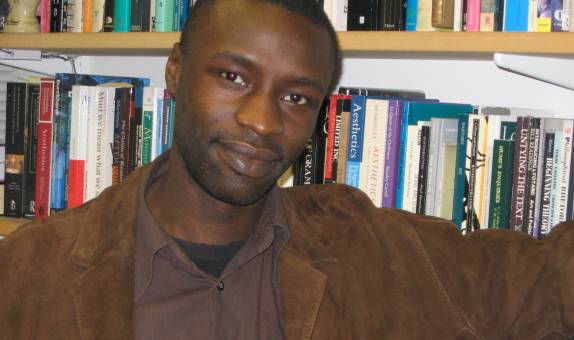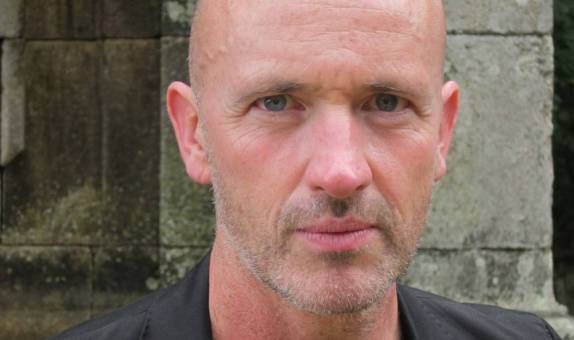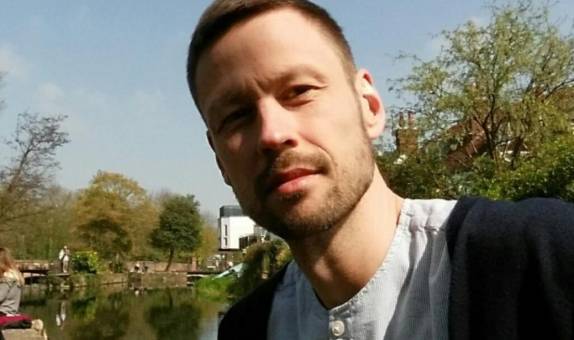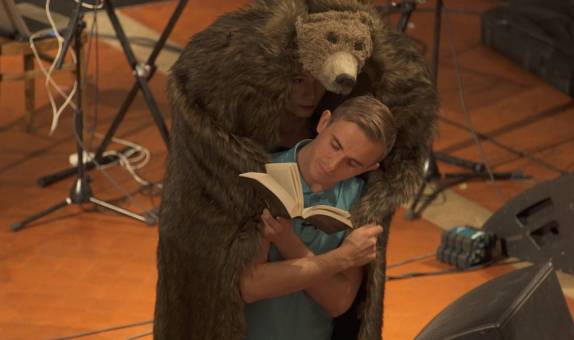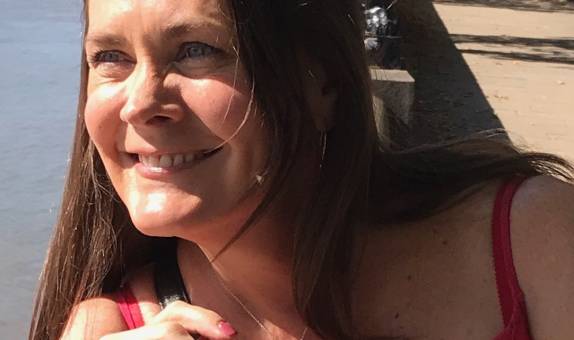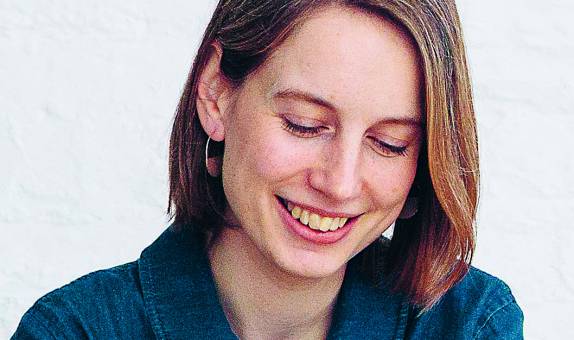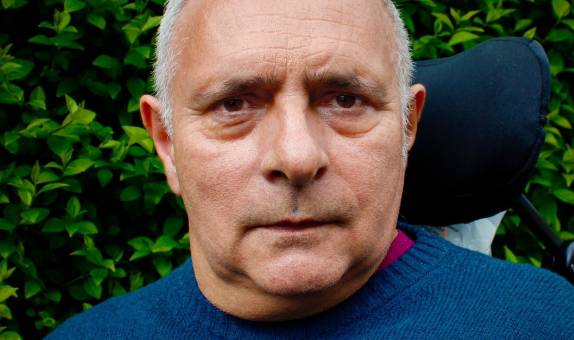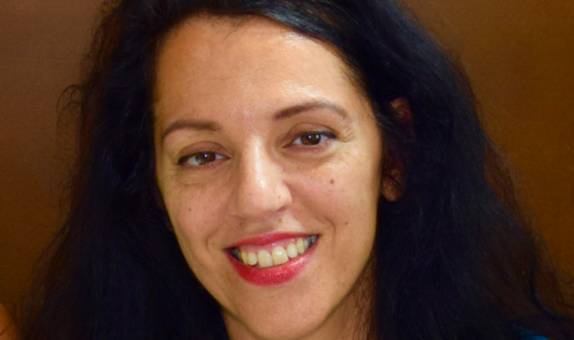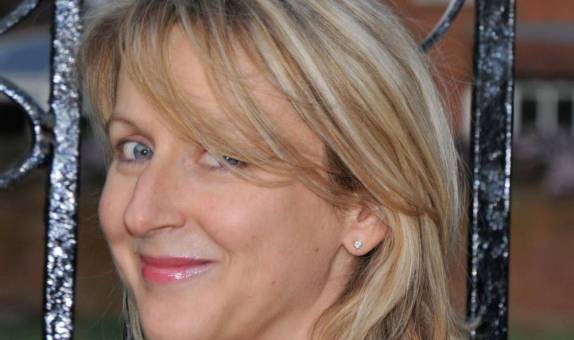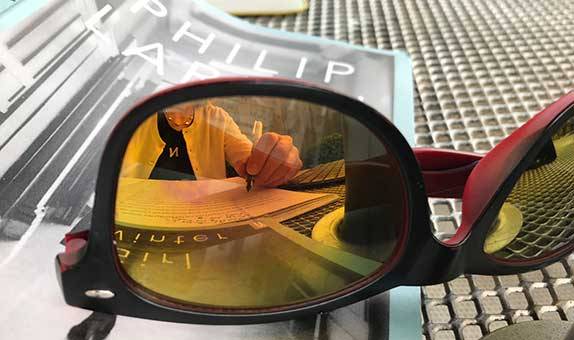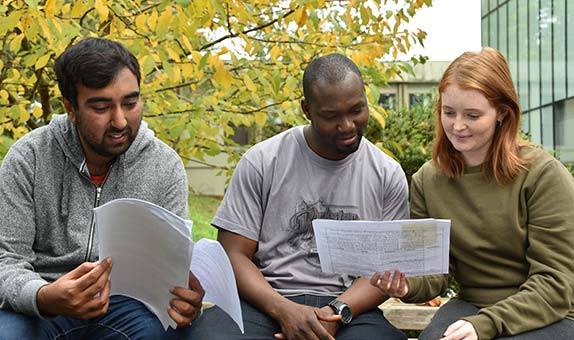Creative Writing MA
Why choose this course?
With a full programme of workshops and critical study, this Creative Writing MA offers you the chance to work on your own writing in different genres with the support of published practitioners.
You will learn in workshops, one-to-one or in small groups, with support from practising and published writers and fellow students. Our award-winning former creative writing students include Booker-shortlisted Oyinkan Braithwaite, Joe Pierson, who won the Bridport Prize, Stefan Mohammed, awarded the Dylan Thomas Prize, Bafta-winner, Sarah Woolner, the acclaimed poet Dom Bury and celebrated novelist Faiqa Mansab.
The Writers' Workshop module will encourage you to develop your writing 'voice' through engagement with fellow students across a range of genres (in fiction or creative non-fiction), while the Special Study module enables you to specialise in one genre, such as fiction, non-fiction, poetry or drama.
This Creative Writing MA will give you the knowledge and confidence to enter the cultural debate and to begin to identify outlets for your own writing.
Our external examiner has rated it highly:
- 'The Kingston MA is very lively, energised and relevant in its outlook.'
- 'You are more experimental, adventurous and original than other creative writing MAs in the UK.'
| Mode | Duration | Start date |
|---|---|---|
| Full time | 1 year |
September 2024 September 2025 |
| Full time | 2 years including professional placement |
September 2024 September 2025 |
| Part time | 2 years |
September 2024 September 2025 |
| Main Location | Penrhyn Road |
Curtis Brown Agent's Choice competition
All successful applicants who take up their place with us in September will be entered into our competition to have a consultation with Annabel White, an agent at top London literary agency Curtis Brown.
So make sure the creative work you submit with your application is your very best - it might win you a meeting with a literary agent.
Reasons to choose Kingston
- The Creative Writing MA helps you to develop the craft of creative writing, either on a general level or through specialising in your chosen genre.
- You will become part of Kingston's thriving community, with events such as readings, lectures from published authors, editors and agents, masterclasses and enriching discussions.
- The creative dissertation and critical essay give you the chance to further specialise. You also explore writing in a range of forms and styles and take a module exploring critical theory and experimental/avant-garde writing.
- You will have the opportunity to contribute to Kingston University's publication, Ripple, which includes fiction, poetry, reviews and creative non-fiction and is edited by students on the course.
- You'll study in workshops, learning one-on-one or in small groups with experts in your chosen area. The course is taught by a combination of:
- appointed staff - many are published authors or active researchers, which keeps your learning dynamic.
- peer review - giving you the chance to discuss your own and other students' work in a mutually supportive environment.
The Art School Experience
As part of Kingston School of Art, students on this course benefit from joining a creative community where collaborative working and critical practice are encouraged.
Our workshops and studios are open to all disciplines, enabling students and staff to work together, share ideas and explore multi-disciplinary making.

What our students say
In this video, one of our creative writing alumna and a current student discuss why they chose the course, what they enjoyed about it and why they'd recommend it to future applicants.
What you will study
You will have the opportunity to develop your creative writing skills in general or specialise in a chosen genre. As well as studying literary criticism and theory, you will also and will look at the professional elements of writing, such as copy-editing and how to get your work published.
Core modules
Optional placement year
You'll be expected to pass all four modules and the dissertation to complete the course.
Core modules
Creative Writing Dissertation
60 credits
This module focuses on your own creative writing and research into your chosen form or genre, developed in consultation with your supervisor. You learn via one-to-one tutorials with your personal supervisor. You produce two pieces of writing:
- a creative dissertation – a portion of a novel, a body of poetry, a play screenplay or other creative form of no more than 15,000 words; and
- a critical essay of approximately 3,000 words – considering the relationships between your own writing and the literary contexts/theoretical concerns that inform published writing in your chosen genre or form.
Your supervisor must agree in advance the final structure, approximate word length and for presentation conventions of these pieces.
Special Study: Workshop in Popular Genre Writing
30 credits
This module offers a regular and intensive review of your writing in one of the following genres: poetry, crime writing, prose fiction, biography, drama, scriptwriting or writing for children. You will be advised on how to strengthen your knowledge of the codes and conventions of your chosen genre to produce a substantial piece or collection of work that will reflect your knowledge of and engagement with your chosen genre. You will apply detailed feedback on your work to your writing as well as using your increased knowledge of your chosen genre to make your writing more effective. These elements will help you improve the key transferable skills of analysis and implementation that will feed forward into your dissertation module and into all analytical/practical tasks you subsequently undertake.
Writing the Contemporary
30 credits
This module provides the opportunity to examine ways in which reading is essential to writing practice and teaches you to apply literary techniques and strategies from contemporary fiction, life writing and poetry texts to your own work. You will develop the concept of 'reading as a writer' in order to explore how contemporary concerns are brought to the fore by artistic strategies, and examine how an understanding of these can provide models for your own creative practice. You will submit work including a reflective reading journal as well as a creative piece in a genre of your choice.
Ten Critical Challenges for Creative Writers
30 credits
The module is designed to introduce students to some issues of critical and literary theory. The module is also designed to make students more aware of how their work impacts upon wider literary, cultural, political and philosophical issues. Awareness of these theories and of some of the issues surrounding the production and reception of literary texts will stimulate them, encouraging creative and conceptual thinking. The module will explore debates about literature and the practice of creative writing through readings of essays and texts that are relevant to criticism and theory. The academic component of the assessment will support the creative work with the objective that students will also have to demonstrate critical, academic, analytical skills.
Writers' Workshop
30 credits
In this module you will present and discuss your own and each other's work in a weekly workshop. The draft work presented may include several genres and forms, such as crime writing, fantasy fiction, children's literature, historical fiction, science fiction, romance and autobiography. Practical criticism of student writing will be accompanied by discussion of the scope or constraints of the various genres, as well as the implications of particular forms. Attention will be paid to the transferable components of good writing: appropriate use of language, narrative pace, dialogue, expression, characterisation and mood.
Many postgraduate courses at Kingston University allow students to do a 12-month work placement as part of their course. The responsibility for finding the work placement is with the student; we cannot guarantee the work placement, just the opportunity to undertake it. As the work placement is an assessed part of the course, it is covered by a student's Student Route visa.
Find out more about the postgraduate work placement scheme.
Entry requirements
Teaching and assessment
Portfolios of exercises, edited and revised creative writing with evidence of extensive drafting, essays, presentations, research projects, substantial pieces of creative writing of publishable standard.
Who teaches this course?
This course is delivered by Kingston School of Art. As a student on this course, you will benefit from a lively study environment, thanks to the wide range of postgraduate courses on offer. The combination of academics and practitioners makes it a unique environment in which to further your studies and your career.
The University provides a vibrant and forward-thinking environment for study with:
- courses designed in collaboration with industry professionals – keeping you up to date with the latest developments;
- established connections with the London arts and media scene – with a range of guest speakers, professors and lecturers visiting the University; and
- committed and enthusiastic staff – many of whom are expert practitioners as well as leading academics and researchers.
Postgraduate students may also contribute to the teaching of seminars under the supervision of the module leader.
Fees for this course
Additional costs
Depending on the programme of study, there may be extra costs that are not covered by tuition fees which students will need to consider when planning their studies. Tuition fees cover the cost of your teaching, assessment and operating University facilities such as the library, access to shared IT equipment and other support services. Accommodation and living costs are not included in our fees.
Where a course has additional expenses, we make every effort to highlight them. These may include optional field trips, materials (e.g. art, design, engineering), security checks such as DBS, uniforms, specialist clothing or professional memberships.
Facilities
There is a wide range of facilities at our Penrhyn Road campus, where this course is based. You will have access to a modern environment with the latest equipment, including the Learning Resources Centre. This offers:
- subject libraries, plus a free inter-library loan scheme to other libraries in the Greater London area;
- online database subscriptions; and
- a growing selection of resource materials.
After you graduate
Some of our departmental graduates have achieved notable successes, having published short stories and novels which were started as part of their degree and attracted good literary agents, for example:
- Oyinkan Braithwaite's novel, My Sister the Serial Killer, reviewed by The New Yorker and BBC Radio 4's Open Book and Front Row, has won the Crime and Thriller book of the year at the British Book Awards; Oyinkan is the first black woman to do so.
- Grainne Murphy has recently signed a two-book deal with Legend Press. Her debut novel, Where the Edge Is, was published in September 2020, with The Ghostlights to be published in 2021.
- Ben Halls' debut The Quarry was book of the day in The Guardian in March 2020.
- Amy Clarke has signed a two-book deal. Like Clockwork is a psychological suspense novel about a true crime podcast host who is obsessively trying to solve the decades-old cold case of a notorious Minnesotan serial killer whose victims were each one year younger than the last. It is due to be published in March/April 2021 by Houghton Mifflin Harcourt, with a second book to follow.
- A story Seraphina Madsen wrote for the MA Critical Challenges module was published in the UK's pre-eminent literary journal, The White Review, and secured her an agent and a book deal.
- Stevan Alcock is another MA student whose debut novel – workshopped on our MA – was published by 4th Estate.
- Hannah Vincent is a former MFA student with novels out with Myriad Editions and Salt.
- Myriad Editions also run a writing competition each year aimed at finding new writers, with MFA student Karly Stilling winning in 2015. This year the award was won by another current Kingston student, Sylvia Carr. Former MA (now PhD student) Joseph Pierson was a recent runner up.
- Julia Lewis is a former MFA student and experimental poet who has gone on to publish a wide range of work. She also rewrote MA tutor James Miller's novel Lost Boys as a collection of experimental poetry.
- Stefan Mohamed won the Dylan Thomas Prize and has gone to have a successful career as a writer of YA fiction.
- MA student Vicky Newham signed a two book deal for her crime series. Vicky is on the Daggers longlist for the best crime novel by a first-time author.
- Faiqa Mansab published her debut novel This House of Clay and Water in Pakistan and India to great acclaim and it has been optioned by the talented Sheherzade Sheikh for screen adaptation.
- Other successes include Susie Lynes and Lauren Forry.
- Other former students have gone on to work in editorial posts in the publishing industry.
Why I chose Kingston
Don't just take our word for it – here's what students say about what it's like to study at Kingston University.
What our students and graduates say
Links with business and industry
A range of additional events and lectures will enhance your studies and add an extra perspective to your learning. Activities for this course include:
- a series of masterclasses with publishing specialists and professionals;
- weekly guest lectures by leading journalists including Samira Ahmed, an award-winning journalist with 20 years' experience in print and broadcast; David Jenkins, editor of Little White Lies, a bi-monthly movie magazine powered by illustration; Richard Moynihan, Head of digital journalism, The Telegraph and Alex Stedman, fashion blogger at The Frugality and former style editor at Red magazine;
- regular readings through Writers' Centre Kingston, which offers an annual programme of events from talks to workshops and festivals, hosted and curated in partnership with institutions local to Kingston University and in London, from The Rose Theatre to the Rich Mix Cultural Foundation, from the Museum of Futures to Kingston First; and
- regular philosophy lunchtime lectures which focus on a major figure in the history of Western philosophy, introducing students to that thinker's work, usually through the discussion of one of her or his emblematic works.
The literary magazine Ripple is edited by MA students, providing:
- a platform for the publication of creative work; and
- a chance to get hands-on experience of the publishing process.
Research areas
Research in English literature and creative writing at Kingston University covers the following areas:
- 19th and 20th century British and American fiction;
- fictions of globalisation;
- modernism;
- gothic writing;
- travel writing;
- narratives of slavery;
- women's writing from the 18th century to the present;
- New Woman and fin de siècle fictions;
- Shakespeare;
- literature of the English Reformation period;
- English women's religious poetry during the seventeenth century; and
- postcolonial studies.
It focuses around the following research initiatives:
- Iris Murdoch Archive– established in 2004 to oversee research on the Iris Murdoch archives acquired by Kingston University in 2003/04).
- Life Narratives Research Group (LNR) – bringing together best practice from all genres of life narrative work.
- Cultural Histories @ Kingston – centred around the concept of the 'cultural text', the group includes scholars from the fields of literature, film, media, history, music, dance, performance, and journalism.
- Writers' Centre Kingston – a literary cultural centre dedicated to creative writing in all its forms, with an annual programme of events, talks, workshops and festivals.
- Race/Gender Matters – captures and concentrates research on theoretical, critical and creative engagements with the materiality of race, gender and language.
We also hold regular seminars and host presentations by visiting speakers.
Course changes and regulations
The information on this page reflects the currently intended course structure and module details. To improve your student experience and the quality of your degree, we may review and change the material information of this course. Course changes explained.
Programme Specifications for the course are published ahead of each academic year.
Regulations governing this course can be found on our website.



